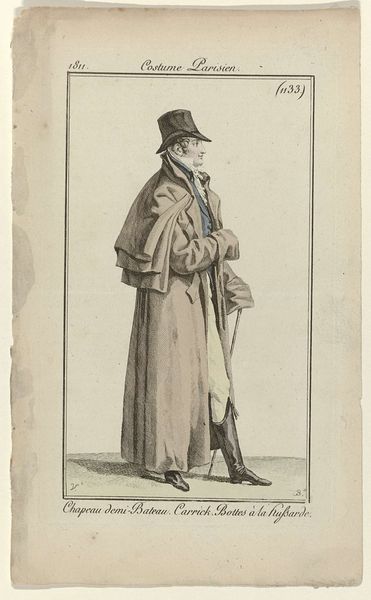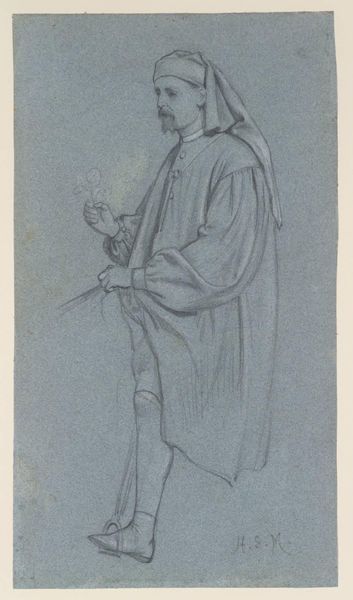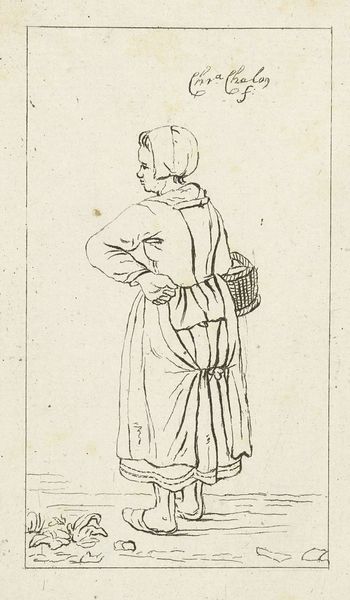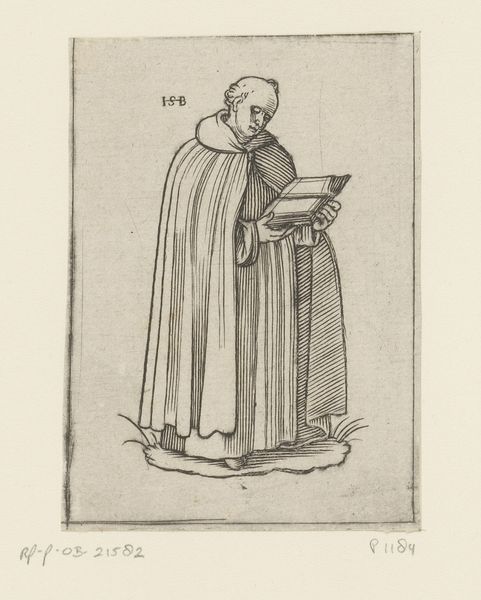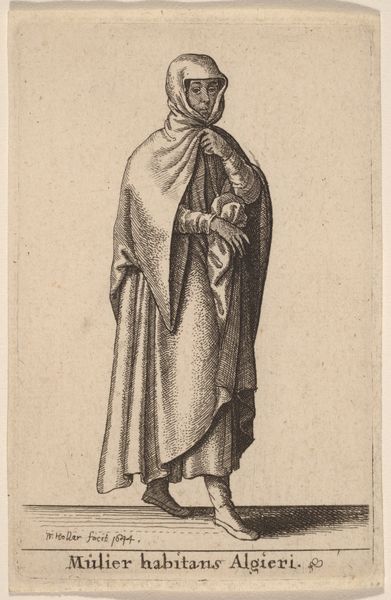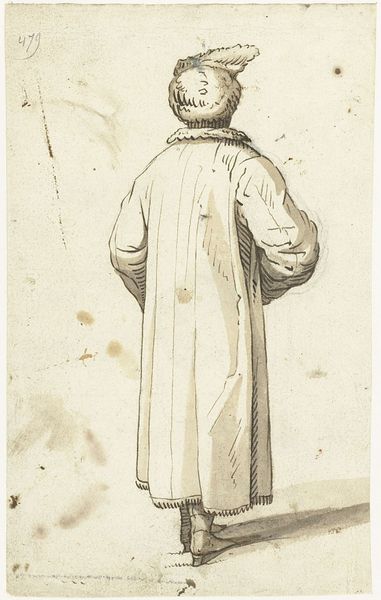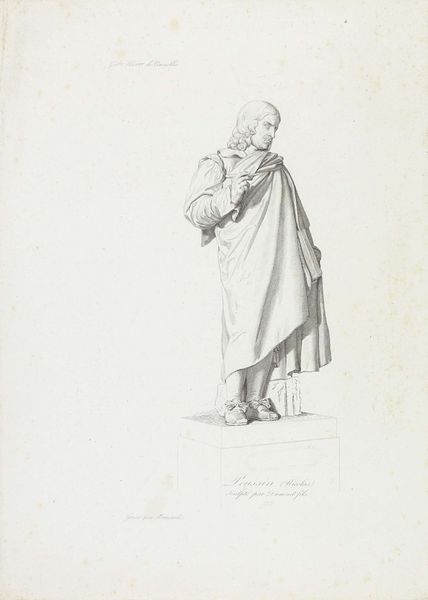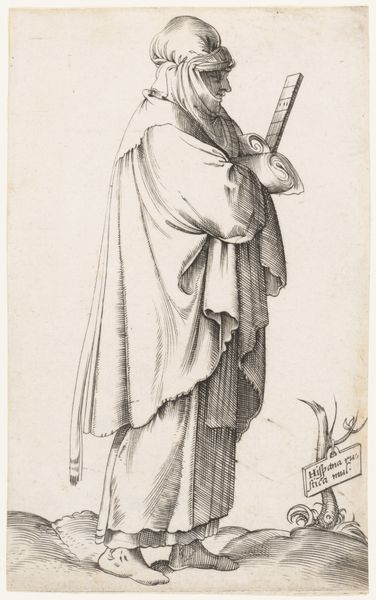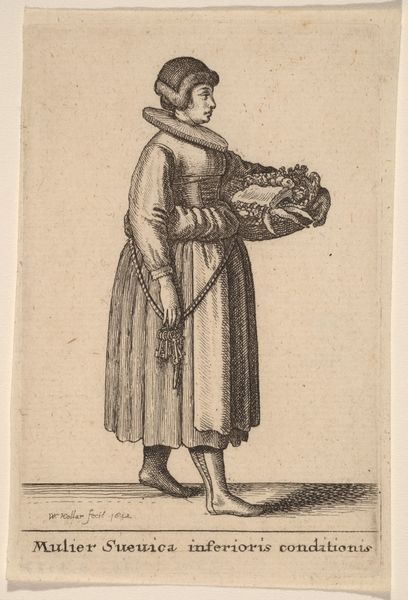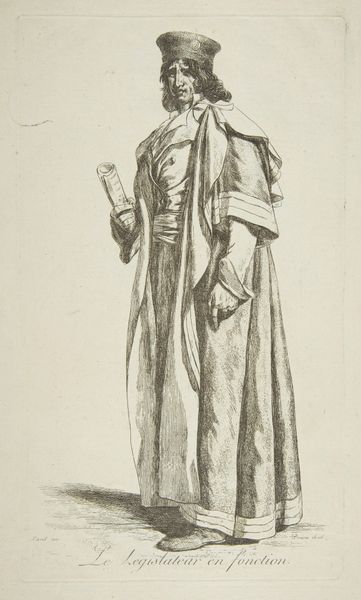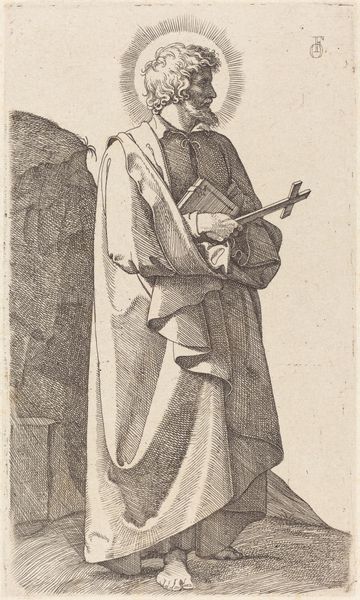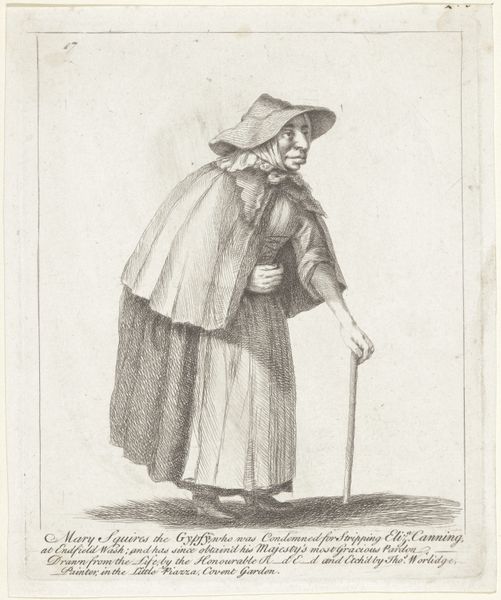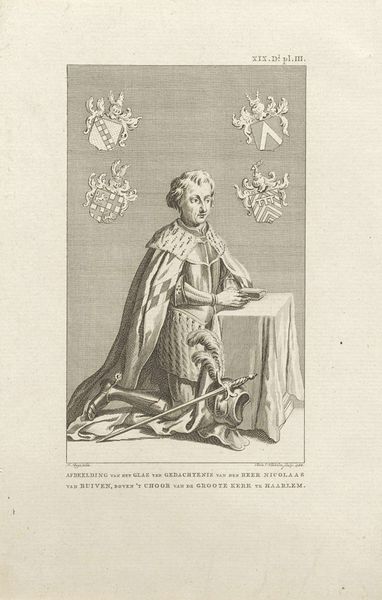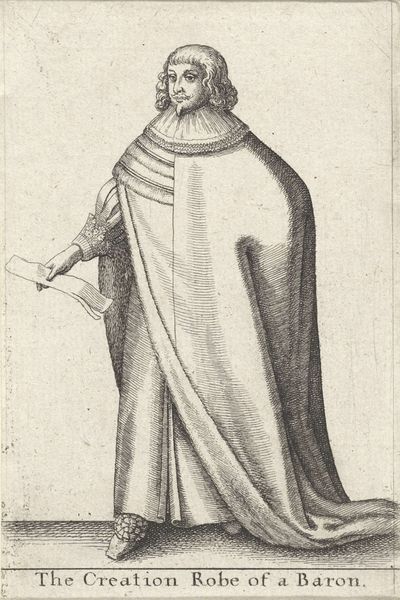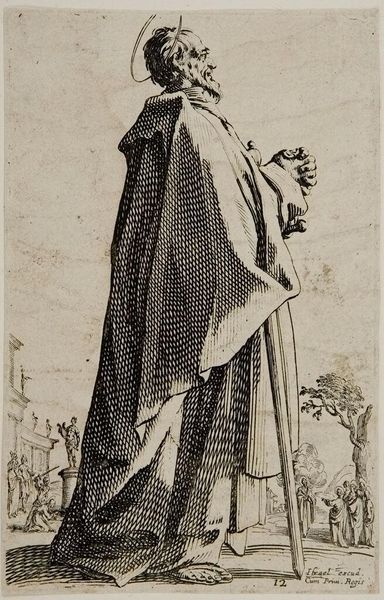
drawing, pencil
#
portrait
#
drawing
#
dutch-golden-age
#
figuration
#
pencil drawing
#
pencil
Dimensions: height 145 mm, width 100 mm
Copyright: Rijks Museum: Open Domain
Editor: This is "Standing Brother with a Rosary" from around 1657, a pencil drawing by Gesina ter Borch, housed here at the Rijksmuseum. There’s a gentle stillness to it, and I am curious to learn more. What do you see in this piece, from an iconographic perspective? Curator: Immediately, I'm drawn to the rosary itself. It’s not simply a string of beads; it's a powerful symbol. Ask yourself, what does the rosary represent for a 17th-century monk? It represents devotion, yes, but also a link to a spiritual community, to centuries of prayer and contemplation. Editor: That’s interesting. So it’s more than just personal piety? Curator: Exactly. The artist emphasizes the monk's downcast gaze and clasped hands. The rendering captures humility and introspection. Notice how his garments conceal rather than reveal the body; it diminishes the material world and emphasizes spirituality. Why might ter Borch choose to depict this specific figure and these specific items? What meaning do these signs possess, both for the sitter and for the society viewing this work? Editor: So it speaks to ideals valued at the time? The focus on spiritual contemplation? Curator: Precisely! And even beyond that, think about the placement of the rosary. It hangs low, near the ground. What associations can we extract? How does it shape your understanding of the portrait? Editor: That's a lot to consider. The way symbols act as cultural shorthand is truly intriguing. Curator: Indeed. Visual culture perpetuates its meaning through potent signs and recognizable representations. This work really speaks to how symbols shape our understanding of history, faith and visual storytelling.
Comments
No comments
Be the first to comment and join the conversation on the ultimate creative platform.
